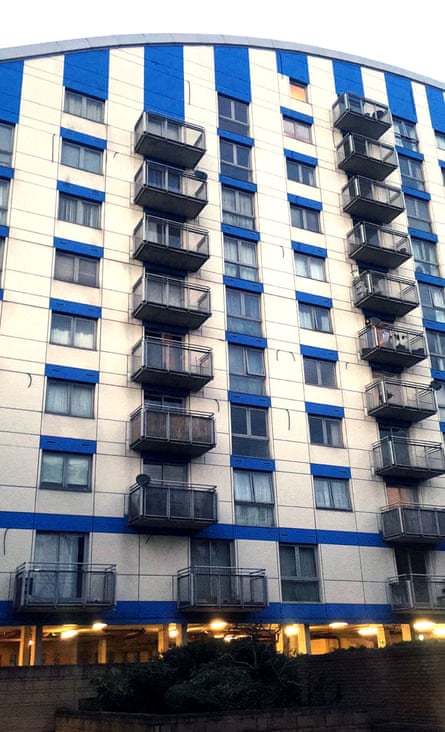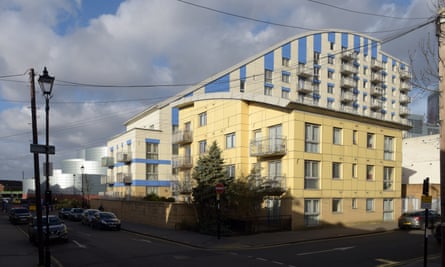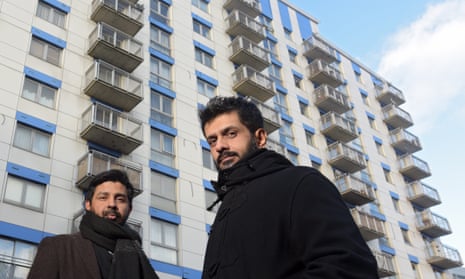“Terrified” residents of a housing complex clad in similar flammable panels to Grenfell tower are facing a bill of £2m to make their homes safe after the building’s owner said it was not its responsibility to pay.
The freehold is owned by a company owned by the family trust of the multi-millionaire property mogul Vincent Tchenguiz, and its property agent has told residents that work recladding the Citiscape complex in Croydon will begin “once full funds are in place”.
The government told the agent to remove the cladding five months ago and Sajid Javid, the housing, communities and local government secretary, last month suggested the landlord was responsible for ensuring residents’ safety.
But freeholder Proxima GR Properties has insisted that it is not obliged to cover the costs of the work, warning leaseholders in the 93 apartments that the bill will increase if they delay payment.

Leaseholders are fighting the charge of up to £31,300 per flat, which could be levied as early as March. Some said it was more than they earned in a year and that they feared for their safety. In a statement a group of them said they had been “left terrified by what could happen in the event of a fire”.
Fire wardens are patrolling constantly at a cost of £4,000 a week, which the company is also planning to pass on to leaseholders.
After the leaseholders were presented with the bill last week, local MP Steve Reed said: “It is an absolute outrage to leave people in a building which they know isn’t safe and is at risk of burning down like Grenfell Tower did”.
Councils and registered social landlords across the country have largely agreed to cover the costs of emergency works to replace cladding on scores of affected buildings. But this dispute is one of the first to affect private blocks and it will be heard in front of a property tribunal next month. On Wednesday, Reed called on the government to intervene urgently.
“Their homes are becoming worthless and they are living in fear of their lives,” he said. “Grenfell Tower is still there in the centre of London, a smouldering wreck, and these people think they could be next.”
Proxima GR Properties is owned by the Tchenguiz family trust, of which Vincent Tchenguiz is a beneficiary.
Tchenguiz, 61, is believed to be worth hundreds of millions of pounds and last year bought a new 165-foot superyacht moored in the Mediterranean called Da Vinci. He is said to own 300,000 freeholds in the UK, including 10 Hilton hotels. His spokesman declined to comment.
The type of cladding on the Citiscape building was tested at the Building Research Establishment in August in the wake of the Grenfell disaster. It failed the test, which meant it did not adequately resist the spread of fire and breached building regulations guidance. The government told it to replace the cladding, but five months later it remains in place.
“We know that this work and the costs are unwelcome,” FirstPort, Proxima’s agent, told leaseholders. “However, as your property manager, our first priority has to be your safety.”
It also warned that the longer they resist the charges and works are delayed “the more it will cost you in other charges such as fire wardens or scaffold costs”.
Alex Blanc, 37, a charity fundraiser who owns a two-bedroom flat in the complex, said: “This situation is out of control. I received a letter telling me I have to pay more than I earn in one year’s salary in six week’s time for something I am not even responsible for. I am very worried about the prospect of losing my flat.”

One of the residents is a 95-year-old pensioner. His son, Richard, said the “demands for horrendous costs” were unreasonable to make of a pensioner who only receives the state pension.
The building owner is demanding the payment despite the intervention of Javid, who has been alerted to the dispute by Reed.
“All of the local authorities and housing associations with whom we are in discussion have indicated that they are choosing not to pass on the costs of recladding to individual flat owners. In the private sector, as in the social sector, it is for the responsible person to take the necessary steps to ensure the safety of residents,” Javid said.
The “responsible person” is usually the landlord, according to the Residential Landlords Association.
FirstPort is taking the dispute to a property tribunal on 6 February. It will argue that the leasehold shows that “the costs are payable by the leaseholders and are reasonable”.
A FirstPort spokesperson said: “We recognise that the potential costs are significant and are committed to minimising them, while putting residents’ safety first. The government has pledged to offer support to owners and residents of high-rise buildings. However, given the pressing need to undertake these essential safety works and the potential costs to leaseholders, we and others in the property industry welcome any clarity the government can provide on what support will be made available.”
In the 10 weeks following the Grenfell disaster, 262 tall residential towers across England were found to have the same or similar combustible cladding panels, including 161 social housing blocks and 26 student halls of residence.
After the Guardian reported the story, a spokesman for the ministry of housing, communities and local government said: “We are clear we would like to see private sector landlords follow the lead of the social sector and not pass on the costs.”
The ministry said that all of the councils and housing associations it is in discussions with have said they are not going to pass on the costs of essential fire safety measures to individual flat owners within their buildings.
“We are giving an extra £465,000 to LEASE, who provide free legal advice to leaseholders, so they can provide a dedicated advice and dispute resolution service for people in buildings that require additional fire safety measures.”
